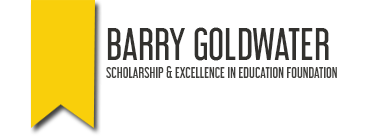Brendan Marsh
Missouri University- Columbia, Physics and Mathematics
2015 Goldwater Scholar
Brendan Marsh turned a game-losing wild pitch into a powerful form of personal motivation.
At the age of twelve, Brendan led his Little League baseball team within an inning of a championship, but when he threw a pitch into the dirt past his catcher, a baserunner scored from third, and Brendan’s team lost the game and the title. Yet “blowing” (his word) that game inspired him to strive ever since to earn whatever “championship” he has sought.
Brendan, University of Missouri class of ’17, double-majoring in physics and mathematics with a minor in computer science, arrived at Mizzou fascinated by physics, and almost immediately landed a spot in Dr. Gavin King’s biophysics lab. In fact, most of Brendan’s research has been in biophysics, pursuing several projects together with Dr. King involving atomic force microscopy. He earned two NSF REUs, the first at Missouri in 2014, following his freshman year. The second sent Brendan to Stanford’s SRI International in 2015, to work on development of a hyperspectral imaging device that would quickly diagnose cancer from a blood sample, a project that he hopes to follow up on during his graduate and professional career.
“I love the creativity that research affords me to come up with solutions to attack pressing problems in science,” Brendan says. “What I like most is discovering new things and figuring out how those discoveries can be used to help people or the world.”
Brendan claims that a summer crammed into a two-bedroom Palo Alto apartment with eleven other Silicon Valley interns was one of his undergraduate highlights. But Brendan’s academic accomplishments (4.0 GPA, several presentations, and scholarly papers—co-author of two already published, with two more in submission as co-author and two as lead author) led to his selection in 2016 as a recipient of the Award for Academic Distinction, akin to an undergraduate hall of fame at Mizzou. His Mizzou mentor, Dr. King, says of Brendan, “In addition to pushing my research group and me into new areas, Brendan is also laudable for pushing himself into new areas. He pushes himself out of his comfort zone and seeks new challenges.”
During his undergraduate years, Brendan was equally active outside of the classroom and lab. He served as captain of Mizzou’s triathlon team (significantly increasing membership and active participation while coaching new members), volunteered as an ambassador for both the Office of Undergraduate Research and the Fellowships Office, tutored for physics classes, and mentored younger students through a program coordinated by the university’s Academic Retention Services.
Brendan knew little about nationally competitive fellowships until he heard about the Goldwater Scholarship, in his second year at Mizzou. He then used the Goldwater application process as a means of learning more about himself, what he wanted to pursue, and, perhaps more importantly, why. According to Brendan,
“Applying to become a Goldwater Scholar gave me much more than a scholarship. From the process, I learned not only how to think like an independent researcher, compiling current literature from my field and proposing a new project, but how to communicate complicated scientific ideas in an articulate and understandable manner. These skills were vital in my later applications for nationally competitive fellowships and graduate school.”
As a junior, despite not speaking German, nor having more than a basic understanding of particle physics, Brendan applied to the DAAD RISE program at the University of Goettingen, Germany, to assist a doctoral student on a project in particle physics. After months of preparation before arriving in Goettingen, diving into books and current literature in particle physics, Brendan developed an artificial intelligence system called a neural network to detect subatomic particles—the notorious Higgs bosons—for ongoing particle collider experiments at CERN in Geneva.
Subsequently, in seeking other fellowships and graduate school admissions, Brendan continued to ask questions of himself, to prod himself into considering how his work—whether in theoretical, particle, or biological physics—could help others: “My ultimate goal is to improve the lives of all I can through physics and mathematics, a dream that I articulated to graduate schools around the world.” Accepted by every graduate program to which he applied, Brendan will use NSF Graduate Research Fellowship funding to attend Stanford University’s doctoral program in applied physics.
Stanford will have to wait a year, however, for Brendan to complete a master’s degree at the University of Cambridge, funded by the University of Missouri’s own Mark Twain Fellowship, which supports one outstanding graduate per year for post-baccalaureate study abroad. He will take a one-year course called Part III of the Mathematical Tripos, regarded as one of the most intensive and most challenging mathematics programs anywhere. Brendan says, “Some of the founding fathers of modern physics have taken the course, and I want to follow in their footsteps. I want to get the best training in applied mathematics and theoretical physics the world has to offer.”
Impressive comeback from a wild pitch.

